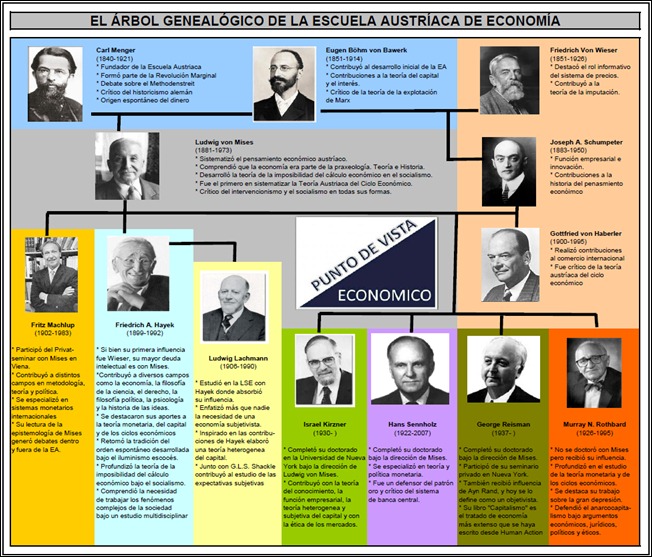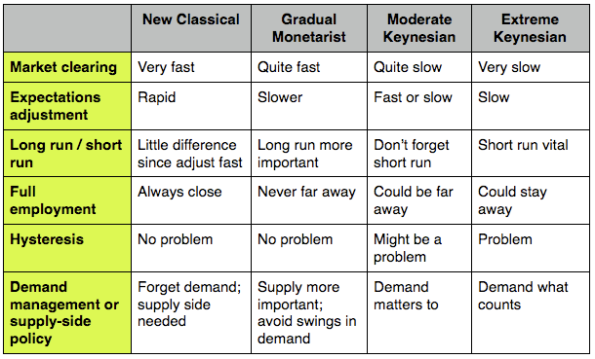The following are some concepts to understand the previous chart:
- Market clearing means a situation of balance in the market between supply and demand.
- Hysteresis is a term that comes from physics. In economy it refers to the fact that a simple disturbance affects the course of economy. If we are talking about unemployment, hysteresis would refer to the effects of increasing unemployment in economy. When unemployment increases, more people adapt their stardard of living, lowering their consumption levels, even if they are not unemployed. If people get used to a lower standard of living, they may not be as determined to achieve the previously desired higher living standard (they adapt their expectactions to the general situation). In addition, as more people become unemployed, it becomes more socially acceptable to be or remain unemployed. When the labor market recovers, some unemployed people may be disinterested in returning to the work force. I've found this information on the following link: http://www.investopedia.com/terms/h/hysteresis.asp
And this one is a chart that compares Keynesian ideas with the Chicago monetary school, led by Milton Friedman:
And this one is a chart that compares Keynesian ideas with the Chicago monetary school, led by Milton Friedman:

Source: http://econfix.wordpress.com/2010/10/15/a2-revision-keynesians-vs-monetarists/
Here you have some more links about these two economic schools:
http://econ.economicshelp.org/2008/07/keynesian-vs-monetarist-theories.html
http://www.economicshelp.org/blog/1113/concepts/keynesianism-vs-monetarism/
The last link in English includes some of the main critics made to Keynesianism:
http://www.economicshelp.org/blog/1113/concepts/keynesianism-vs-monetarism/
The last link in English includes some of the main critics made to Keynesianism:
http://econ.economicshelp.org/2008/12/great-keynesian-debate.html
This family tree includes the names of the main contemporary economists and a short explanation of their main ideas. Many of them have based their work on Keynes' ideas:

This family tree includes the names of the main contemporary economists and a short explanation of their main ideas. Many of them have based their work on Keynes' ideas:

And this one in Spanish includes the main members of the Austrian school:

If you want to read a chapter to this Cartoon Introduction to Economics, click on the image below to enlarge the text:
And this one is a link in Spanish, where you can find the biographies and main ideas of the most important economists in history:
http://www.eumed.net/economistas/s.htm

No comments:
Post a Comment